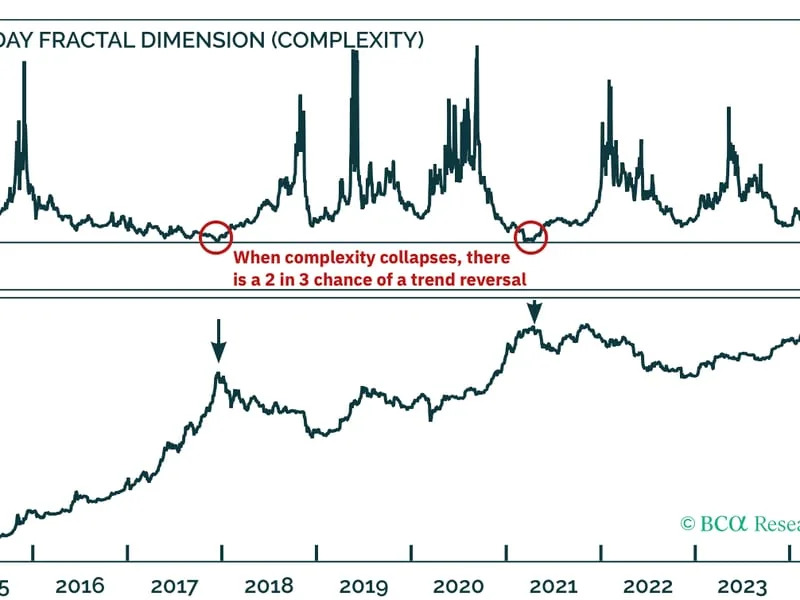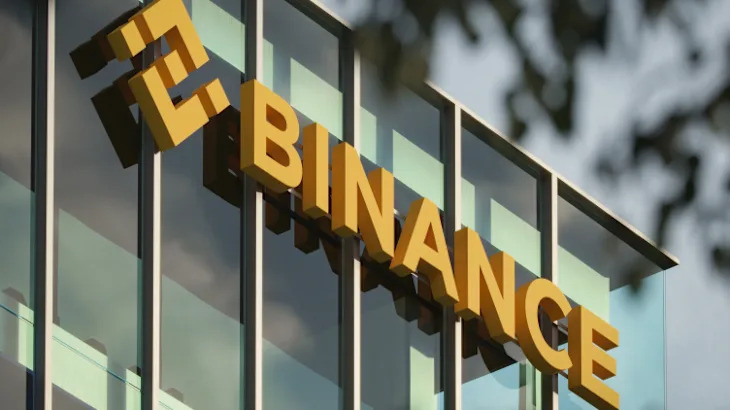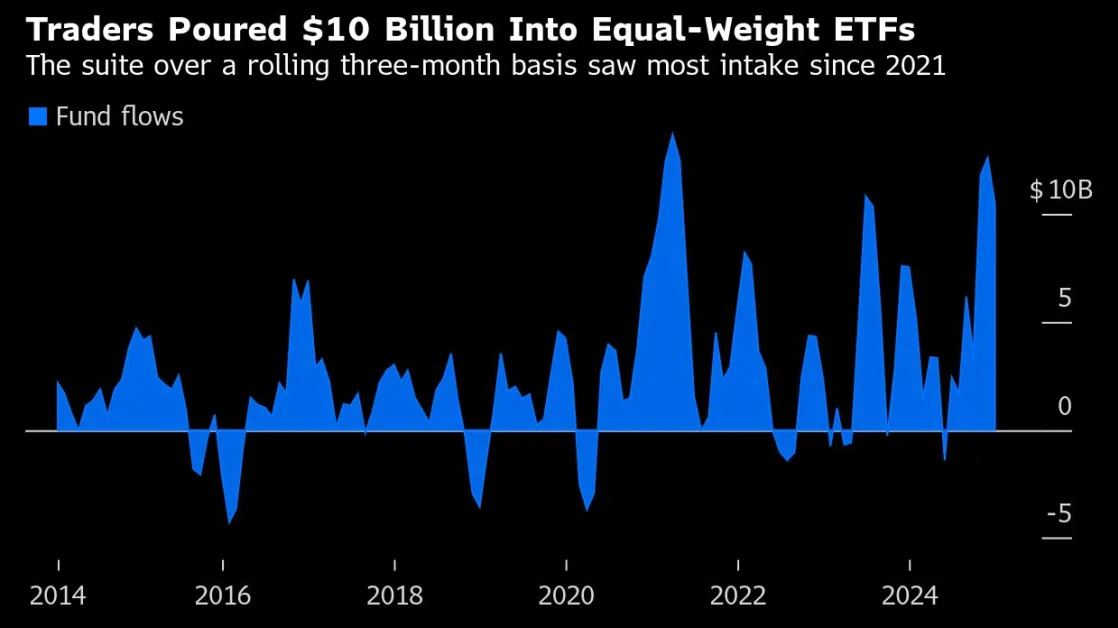While bitcoin {{BTC}} is still hovering below the six-figure mark, one firm is confidently predicting the price could more than double from the current market rate of $90,000.
Yes, you read that right. According to BCA Research, bitcoin's ultimate target could be more than $200,000.
The prediction is based on bitcoin's "260-day fractal dimension complexity," a measure of the patterns that appear in bitcoin's price changes. The metric remains well above 1.20, a threshold that has signaled bull market peaks when the reading is lower. BCA Research suggests that this time a drop below that level could correspond to prices exceeding $200,000.
The gauge measures the complexity of the price changes over 260 days. It is a signal based on the quantification of the dimensionalities of fractals, which are patterns that appear at various scales and are often observed in nature and mathematics. In financial markets, fractal analysis identifies recurring patterns and informs predictions.
A higher fractal dimension complexity means difficulty interpreting price trends, making market movements more unpredictable. A declining reading suggests that price patterns are becoming more predictable and stable. Low readings can represent complacency in the market, a false sense of security among traders that prices could continue to move in a particular direction. Such a situation is usually seen at bull market tops.
"Despite bitcoin's election-fueled rally, its 260-day complexity is not yet close to the 1.2 level that would signal the start of another crypto winter," the BCA Research team led by Chief Strategist Dhaval Joshi said in a Nov. 14 note to clients. "Hence, while we should expect a near-term retracement, bitcoin's structural uptrend is intact with an ultimate destination of $200,000+."
The team said the value of bitcoin's network effect has substantial upside and as global wealth rises, the value of the network effect of both gold and bitcoin will also increase.
"In the case of both gold and bitcoin, their network effect comes from the collective belief that they are the non-confiscable assets to own in a fiat monetary system. And that certain portion of total wealth must be held in these non-confiscable assets as an insurance against hyperinflation, banking system failure, or state expropriation."






